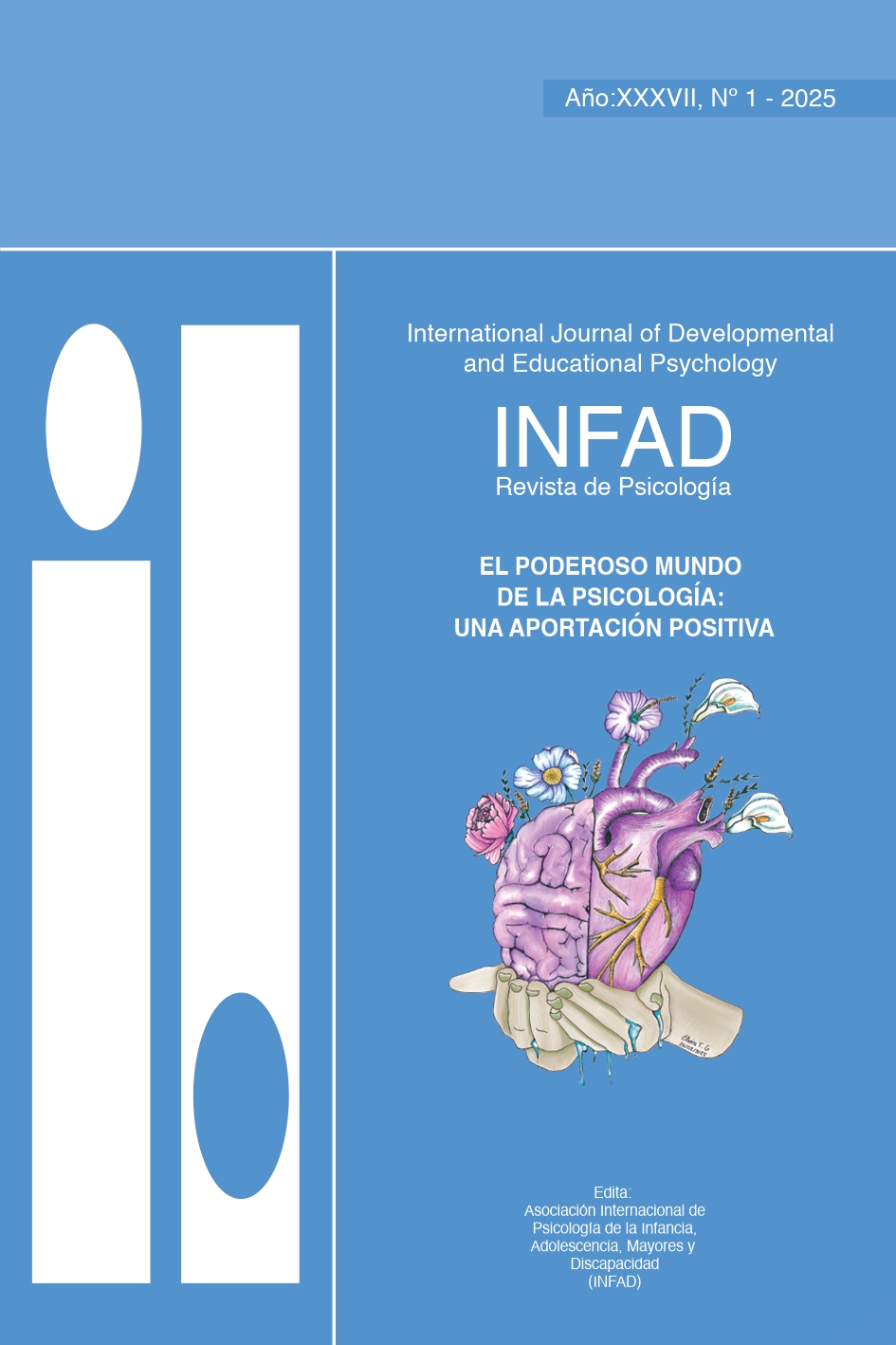Avaliação de habilidades adaptativas laborais de pessoas com deficiência intelectual
##plugins.themes.bootstrap3.article.main##
Resumo
O objetivo deste estudo foi avaliar os efeitos da implementação do Programa de Emprego Apoiado Horizontes no desenvolvimento das habilidades adaptativas laborais de jovens e adultos com deficiência intelectual. Participaram da pesquisa cinco estudantes de uma escola especializada de um município de grande porte da Região Metropolitana de Curitiba, Paraná (Brasil). A avaliação das necessidades de apoio foi realizada por meio da Escala de Intensidade de Apoio para Adultos (SIS-A), instrumento validado internacionalmente, aplicado em dois momentos: antes e após a intervenção. Na fase inicial, a SIS-A evidenciou barreiras significativas que comprometiam o acesso e a permanência no trabalho, principalmente nos domínios de comunicação funcional, vida na comunidade, atividades de aprendizagem contínua e habilidades laborais. Com base nesses dados, foi elaborado e implementado o Programa de Emprego Apoiado Horizontes, que combinou atividades teórico-práticas estruturadas e o Planejamento Centrado na Pessoa (PCP), buscando o fortalecimento da autonomia e a preparação para o mercado de trabalho. Após a intervenção, a reaplicação da SIS-A revelou uma redução na intensidade das necessidades de apoio em todos os participantes, indicando avanços em habilidades fundamentais para a vida e o trabalho. As áreas que apresentaram maior evolução foram o uso de transporte público, a organização da rotina diária e o desempenho em ambientes profissionais. Os resultados demonstraram que a avaliação sistemática das necessidades de apoio, associada a estratégias educacionais personalizadas, contribuiu para o aumento da autonomia, da participação social e da empregabilidade dos participantes. Conclui-se que a utilização da SIS-A como instrumento de planejamento e monitoramento de intervenções é essencial para a promoção de práticas inclusivas e para o fortalecimento de políticas públicas voltadas à inclusão laboral de pessoas com deficiência intelectual.
##plugins.themes.bootstrap3.article.details##
Secção

Este trabalho encontra-se publicado com a Licença Internacional Creative Commons Atribuição-NãoComercial-SemDerivações 4.0.
Aquellos autores/as que tengan publicaciones con esta revista, aceptan los términos siguientes:
- Los autores/as conservarán sus derechos de autor y garantizarán a la revista el derecho de primera publicación de su obra, el cuál estará simultáneamente sujeto a la Licencia de reconocimiento de Creative Commons que permite a terceros copiar y redistribuir el material en cualquier medio o formato bajo los siguientes términos: —se debe dar crédito de manera adecuada, brindar un enlace a la licencia, e indicar si se han realizado cambios. Puede hacerlo en cualquier forma razonable, pero no de forma tal que sugiera que usted o su uso tienen el apoyo de la licenciante (Atribución); — no se puede hacer uso del material con propósitos comerciales (No Comercial); — si se remezcla, transforma o crea a partir del material, no podrá distribuirse el material modificado (Sin Derivadas).
- Los autores/as podrán adoptar otros acuerdos de licencia no exclusiva de distribución de la versión de la obra publicada (p. ej.: depositarla en un archivo telemático institucional o publicarla en un volumen monográfico) siempre que se indique la publicación inicial en esta revista.
- Se permite y recomienda a los autores/as difundir su obra a través de Internet (p. ej.: en archivos telemáticos institucionales o en su página web) antes y durante el proceso de envío, lo cual puede producir intercambios interesantes y aumentar las citas de la obra publicada. (Véase El efecto del acceso abierto).

Este obra está bajo una licencia de Creative Commons Reconocimiento-NoComercial-SinObraDerivada 4.0 Internacional.
Como Citar
Referências
American Association on Intellectual and Developmental Disabilities. (2021). Supports Intensity Scale – Adult Version (SIS–A): User’s manual (2nd ed.). AAIDD.
American Psychological Association. (2020). Publication manual of the American Psychological Association (7th ed.). APA.
Barros, R., & Medina, P. (2024). Emprego apoiado e deficiência intelectual: Práticas inclusivas no contexto brasileiro . Editora Inclusão e Trabalho.
Benedetti, M., & Junior, R. L. (2024). Inclusão no mercado de trabalho: Desafios e possibilidades para pessoas com deficiência intelectual. Revista Brasileira de Educação Especial, 30 (1), 45–60. https://doi.org/10.1590/2024-30.1.0045
Boueri, Y. Z. (2018). Habilidades adaptativas e inclusão de pessoas com deficiência intelectual no trabalho. Revista Educação e Sociedade, 39 (143), 889–906. https://doi.org/10.1590/es.2018.143
Brasil. (2015). Lei nº 13.146, de 6 de julho de 2015. Estatuto da Pessoa com Deficiência. Diário Oficial da União. https://www.planalto.gov.br/ccivil_03/_ato2015-2018/2015/lei/l13146.htm
Foresti, C., & Bousfield, A. B. (2022). Barreiras organizacionais e inclusão de pessoas com deficiência: Um olhar crítico sobre a Lei de Cotas. Revista Psicologia: Teoria e Prática, 24 (1), 1–18. https://doi.org/10.5935/2022-psic-teor-prat.240101
Leite, L. P. (2023). Planejamento centrado na pessoa: Estratégias para a autonomia de jovens com deficiência intelectual . Editora Vozes.
Luecking, R. G. (2021). The guide to customized employment: The new reality in employment supports . Brookes Publishing.
Murgo, C. S., Schwartzman, J. S., & Martinelli, J. E. (2022). Planejamento centrado na pessoa: Avanços e desafios no contexto brasileiro. Revista Brasileira de Educação Especial, 28 (2), 191–210. https://doi.org/10.1590/s1413-6538282220230000010
Organização das Nações Unidas. (2006). Convenção sobre os Direitos das Pessoas com Deficiência. https://www.un.org/esa/socdev/enable/documents/tccconvs.pdf
Schalock, R. L., Luckasson, R., & Tassé, M. J. (2021). Intellectual disability: Definition, diagnosis, classification, and systems of supports (12th ed.). AAIDD.
Schalock, R. L., et al. (2010). Intellectual disability: Definition, classification, and systems of supports (11th ed.). AAIDD.
Thompson, J. R., Bryant, B. R., Campbell, E. M., Craig, E. M., Hughes, C., Rotholz, D. A., ... & Wehmeyer, M. L. (2004). Supports Intensity Scale: User’s manual . American Association on Mental Retardation.
Wehman, P. (2013). Life beyond the classroom: Transition strategies for young people with disabilities (5th ed.). Brookes Publishing.

